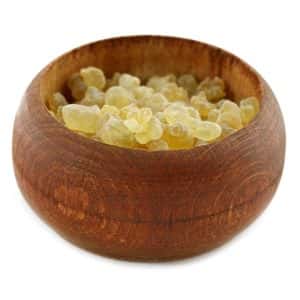
What can you do for the aches and stiffness of arthritis? Nearly all of the pain relievers that people may use have significant drawbacks if they are taken daily. That is no doubt why so many people have sought out herbal medicines or home remedies that may help ease the pain and inflammation. We were impressed with this report from a pharmacist.
Pharmacist Worries about Taking NSAIDs:
Q. I am a clinical pharmacist and know very well the potential adverse effects of the chronic use of NSAIDs. That is why I have avoided ibuprofen and other such agents.
I saw my primary care provider for a physical in April and asked him about the pain in my hands, wrists, elbows and feet. He tested me for autoimmune diseases (negative) and recommended Tylenol. It didn’t help. My son, who is studying to be a chiropractor, suggested boswellia, an Indian herb.
I am completely amazed! Over a period of three weeks my pains have gradually improved. I am able to do all of my daily activities like mowing the lawn or working in the garden with much less stiffness and pain. I still get sore muscles, but I don’t have that constant achy feeling I had before that wore me out.
I have had very few side effects. Boswellia is a mild diuretic and should be taken with food to avoid stomach irritation. Consider this agent instead of taking Motrin, Advil or Aleve.
The Benefits of an Indian Herb:
A. NSAIDs (nonsteroidal anti-inflammatory drugs) can cause bleeding ulcers, high blood pressure, dizziness, ringing in the ears, kidney problems and rash. There is growing concern that NSAIDs also increase the risk of heart attacks and strokes (American Journal of Medicine, July, 2011).
Boswellia is a tree resin that has traditionally been used in India to treat rheumatism, ulcers and skin disorders. Research shows it has anti-inflammatory activity. Reviews of small studies suggest that this Indian herb is potentially useful for treating osteoarthritis in the knee or other joints (Nutrition Journal, Jan. 5, 2016; Cochrane Database of Systematic Reviews, May 22, 2014). To learn more, visit the Herb Library at peoplespharmacy.com.
Revised 4/21/16

